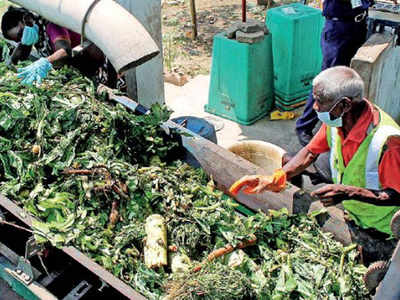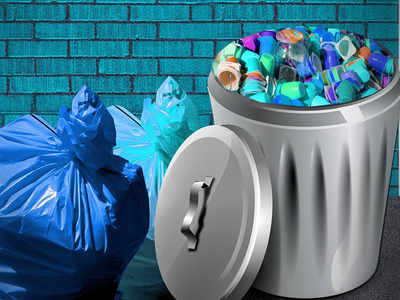The Hindu 08.09.2016
Waste fuels community kitchen
Corporation plans another bio-digester in Tiruchi
A community kitchen fuelled by methane that has been
generated from the faecal waste of a nearby toilet complex and discarded
vegetables from the Gandhi Market is setting a new benchmark in
eco-friendly sanitation technology in the city.
The
biogas settler project, worth Rs. 40 lakh, has been constructed by the
Tiruchi City Corporation in Viragupettai, a former open firewood market
and ground that was being used for open defecation on East Boulevard
Road. It has been functional since February. The toilet complex and
kitchen are being managed by the sanitation non-governmental
organisation (NGO) Gramalaya, through its WAVE federation of self-help
groups.
The technological know-how for the plant has
been provided by the Namakkal-based Sundaram Fab, a firm with 25 years’
experience in biogas generation projects.
The
Corporation is looking into replicating the success of the project in
other economically deprived areas of the city as well. “Another
bio-digester plant has been proposed at the Woraiyur market that will be
attached to a community kitchen,” Corporation Commissioner N.
Ravichandran told
The Hindu
. He added that the Rs. 25-lakh project was expected to benefit at least 100 families on the Kalnaickan Street.
Methanisation
is the decomposition of organic matter without oxygen by microbial
ecosystems. It produces a gas, called biogas, made up of methane and
carbon dioxide.
In the Viragupettai project, the
bio-methanisation plant needs 500-600 kg of bio-degradable waste. Around
100-150 kilos are from the toilets and the remaining 450-500 kilos are
sourced from the Corporation’s solid waste collection. The waste form
the toilets and vegetable waste are fed directly into the reactor
through underground drainage pipes.
The kitchen that neighbours the reactor has 16 single-hob stoves that can be used throughout the day.
“The
total capacity of gas produced from the bio-methanisation plant is 30
cubic metres. Out of this 8 cu.m is used for the plant’s need and 22
cu.m for the community kitchen,” said Amuthavalli, Executive Engineer of
Tiruchi Corporation.
The urban slum of Viragupettai
has 2,000 residents. “The kitchen is free for those living in the slum.
Most of these people are often forced to cook with firewood stoves on
the pavement because their tenements are very small. This hall gives
them an opportunity to make food in a hygienic manner,” said X. Selva
Mary, a WAVE volunteer at the project.
The slurry
water is directed to a collection pond with water hyacinth and fish,
while the overflow is used as liquid manure for plants.
The
Viragupettai toilet complex (segregated for men, women and children)
was built in 2001 by Gramalaya with funding from the international
charity Water Aid, as part of its public hygiene campaign against open
defecation.
The well-maintained area bears no resemblance to its earlier life as a ground notorious for overflowing faecal matter.
Today,
two women staff members from self-help groups are in charge of
maintaining the complex. Separate workers are employed to clean the
toilets daily. A Re. 1 token allows the families in the slum to use the
toilet multiple times a day. Other users, such as those frequenting the
markets and temples nearby, are charged per visit. “We are able to save
around Rs.1,000 from the user fees, which we reinvest in maintenance
work,” said Gramalaya volunteer Shanmughavalli. “We hope more areas in
Tiruchi will be able to create similar eco-friendly hygiene projects.”
Tiruchi
Corporation generates 469 tonnes of garbage at the rate of 417 grams
per capita. Of this, 60 per cent of waste is bio-degradable, said
Corporation sources.



